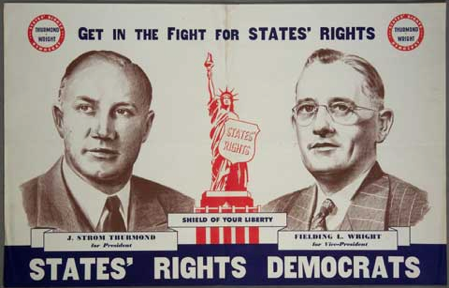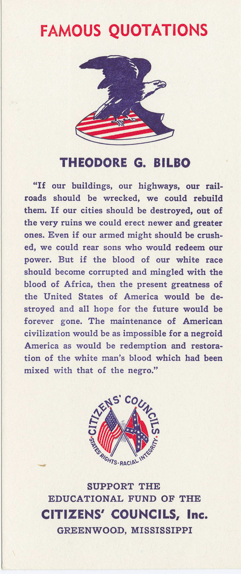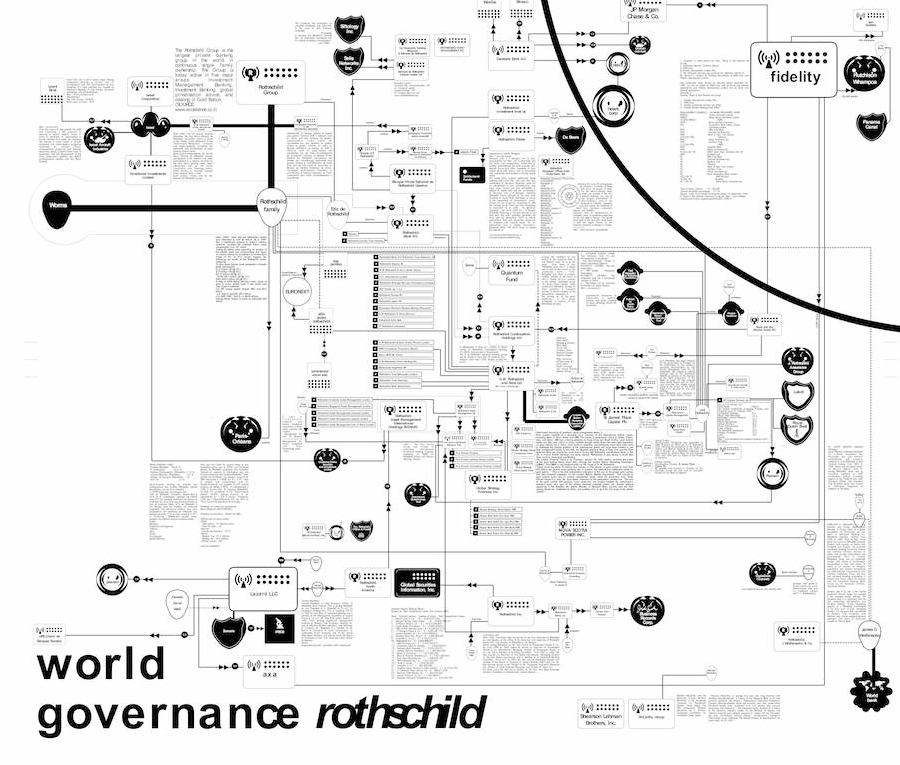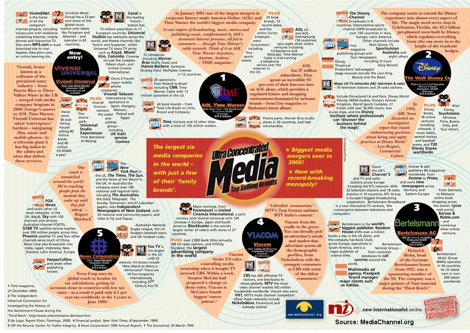Waking People Up, pt. II: Because There’s a War on For Your Mind
Michael Kackman / Independent Scholar

A cup of tea?
In the January 14 New York Times, Sam Tanenhaus charts an intellectual history of recent conservative insurgencies. What distinguishes the Tea Party movement of the past two years, he suggests, is that it is the first truly bottom-up activist cycle; in the past, such efforts were “centralized operations, often guided by insiders, in many cases Ivy League intellectuals who helped groom political figures for the national stage.”1 Figures like F. Clifton White, L. Brent Bozell, and William F. Buckley served, for years, as focal points of right-wing intellectual thought, and helped lay the rhetorical groundwork for the candidacies of Barry Goldwater and Ronald Reagan. Debates among them and the policy institutes they helped found “had the effect of uniting intellectuals with politicians, and of bridging differences that might otherwise have separated ‘top-down’ strategists from ‘bottom up’ activists.” With the emergence of the loosely organized Tea Party movement in recent years, however, this coalition has largely fractured, with activists increasingly turning against conventional political establishments – even those that had become cherished institutions of the right. The most obvious example of this is the apparent inability of the Republican Party to coalesce around a presidential candidate, though the fractures are widespread.
To Tanenhaus, this schism has led to an activist movement that is unmoored, lacking an intellectual platform or ideological coherence. He does acknowledge that the Tea Party sees itself as pursuing big ideas, but, he writes, “they tend to emphasize quixotic crusades — the repeal of the 17th Amendment, which established the election of United States senators by popular vote, or Representative Ron Paul’s mission to abolish the Federal Reserve.”
Like many political commentators, Tanenhaus misreads the intellectual foundations of the Tea Party movement. The movement may seem rudderless and their “crusades” quixotic when viewed from the perspective of mainstream national party politics, but they are hardly insignificant. They’re also in no way new.
This is a movement that is very much about ideas, and most of them have been around for a long time.
In fact, the most cherished principles of the Tea Party reveal a clear consistency when they’re traced back to the white nationalist ideologies that articulate them in more strident form. Though the mainstream Republican Party is loath to admit it, many of those core principles are simply historical platform points of the radical right, gone underground for the past several decades. The movement to repeal the 17th Amendment, for example, seems “quixotic” only if one overlooks the Dixiecrats and the centrality of the “Southern Strategy” to the Republican realignment of the 1960s and 1970s. To the Dixiecrats and other neo-Confederate advocates of “states’ rights”, the repeal of the 17th Amendment was a key mechanism by which Southern whites hoped to restore their political hegemony in the face of federal civil rights protections for people of color (for Dixiecrats, one of the key rights they hoped to preserve was the ability of states to maintain Jim Crow segregation laws).2

Strom Thurmond’s split from the national Democratic party in his 1948 Dixiecrat run was one key step toward the defection of Southern whites to the Republican party by the late 1960s.
When political figures like Texas governor Rick Perry voice their support for repeal of the 17th amendment or invoke the possibility of using the rhetoric of “states’ rights” to nullify federal statutes, they make an implicit but unmistakable nod to segregationist politics that have been anathema on the national political stage for four decades. Overt white nationalist ideologies have been outside the pale of acceptable political discourse for years, though they’ve been preserved – nurtured, even – by the Patriot and militia adherents who have long used micro-publishing and low-power and pirate radio for their political organizing. What has changed, in the years since the emergence of the Tea Party in 2009, is that ideas long laid dormant and disavowed have found a new home in mainstream politics.3

The segregationist White Citizens’ Councils that so staunchly defended states’ rights in the civil rights era are now gone, largely collapsed into the still-active Council of Conservative Citizens, which positions itself as a defender of white heritage against an onslaught of racial crime. Their website, cofcc.org, is supported by advertisers like Lighthouse Literature, which calls itself “a bright light for the white knight”, and “your premier online bookstore for right-thinking and white-thinking literature.” The CCC has actively supported Tea Party events, with mixed responses to their overtly racist rhetoric.4
As I’ve discussed earlier, “ending the Fed” and returning to the gold standard – that other “quixotic” quest of the Tea Party – is a core principle for the Patriot movement. Even were it not central to their ideological beliefs, the buying and selling of gold as a hedge against the market manipulations of the Federal Reserve is so central to the economics of Patriot radio that it is impossible to imagine it functioning without it.
The engine of Patriot radio is the precious metals market.
Bob Chapman, retired gold and silver broker and author of the International Forecaster newsletter, is a regular guest of the Alex Jones Show. His newsletter is cross-promoted with Midas Resources, the precious metals distributor that is Jones’ principal sponsor, and which is owned by Ted Anderson, who also owns the radio network on which the show airs. Chapman regularly appears on the air with Jones, often to offer commentary about geopolitical affairs with a particular eye toward their potential impact on the precious metals market (rarely do his insights lead anywhere other than a call to buy more gold).
In September, 2011, for example, Chapman told listeners to expect “gold shortly at $2,000 to $2,200 with silver at $60 to $70. By March gold could be $3,000 to $3,200 and silver $100.00…. September and the final quarter of 2011 is going to be a wild and wooly affair. If you are not yet into gold and silver related assets you had best start getting involved. If you own them buy more. You have no idea how really wild this is going to get.” 5 The frenzied buying promoted by Chapman, Jones, and Anderson seems, at least in the short run, to have lined their pockets at the expense of their customers. In fact, gold and silver both peaked right around the time of Chapman’s pronouncements – silver at around $43/oz, and gold at $1900/oz. As the small print says, past performance is no guarantee of future results – but as of March 13, 2012, gold is trading at $1697 (vs the $3000+ Chapman predicted), and silver is $33.60, just a third of Chapman’s predicted price.6 The enthusiasm of the gold sellers remains, however, undimmed.
Though you’d likely never see it mentioned on more mainstream Tea Party websites, the turn to gold and the aversion to the Federal Reserve goes far deeper than a skepticism toward fractional reserve banking as an economic principle. Instead, a gold economy is seen as an ideological bulwark against the global totalitarianism of “international banker” cartels – a fear that, as I discussed in the first installment of this article, is little more than a modern version of the anti-Semitic canards of the Protocols of the Elders of Zion.
True to that mission, as part of the background materials on Chapman’s website, he offers a downloadable PDF of the holdings of the Rothschild banking cartel, titled simply “World Governance Rothschild”. It’s a fascinating document, not simply for the kinds of information it includes (about interlocking economic relationships, and the presumed geopolitical powers structured by them), but as a model for the workings of ideology and power. Read that way, it reveals the Patriot movement and its intertwined conspiracy theories to be a kind of Bizarro parallel to leftist critiques of media consolidation.

Viewed in long shot, “World Governance Rothschild” brings to mind The Nation magazine’s media ownership graphics, Free Press’s media consolidation charts, and the now-defunct mediachannel.org’s Ultra-Concentrated Media poster:

Never mind that the Rothschild chart is full of innuendo and dubious math; it nonetheless represents a kind of conceptual model of power relations that is, if you squint hard enough, familiar to many media scholars. Its conclusions support a hard right white nationalist ideology, but the Patriot movement’s critical methodologies are borrowed, at least in part, from the left.
Somehow, somewhere along the way, it looks a lot like somebody in the white nationalist movement read the Jewish Frankfurt School theorists Theodor Adorno and Max Horkheimer, and managed to use them to build a model of a world under threat of a Zionist conspiracy.
Ideas lead strange lives, indeed.
This wouldn’t be the first time that left and right politics meet; the most fertile point of cross-pollination, it seems, is down at the bottom of the Political Compass, where anarchists and libertarians comingle. That cross-over has been going on for years, and likely helps explain in part the contradictory mix of participants at Occupy events, as well as the sometimes ambiguous and contradictory politics of anarchist punk subcultures. It is also reflected in tensions within anti-globalization movements. Leftist “black bloc” activists who rally at meetings of the World Trade Organization and the G7/G8/G20 economic summits have complained about being accused of harboring hate groups because of the small percentage of white nationalist National Anarchists who also attend their events.7
The range of critics of neoliberal globalization is vast – ranging from those drawing attention to the developmental inequalities facing the global South to labor and human rights activists, to nationalist/protectionist groups – and these commonalities are probably best understood as sites of resonance, not intentional coalitional politics. What they share though, at some level, is an antipathy toward consumer society, a skepticism toward centralized state power, and a critique of the narcotic effects of mass culture, which they believe lulls us into complacency.
Adorno and Horkheimer called it false consciousness, and attributed it to the alienation of citizens from the products of their labor, and from one another; instead of meaningful human relationships, we are conditioned to seek solace and pseudo-individuality in the saccharine pleasures of a media culture that only sells us more conformity and self-reproducing myths.
Alex Jones calls it an Info War, and blames it on a Zionist banking conspiracy and airplanes distributing mind-control agents.

In one of the most striking convergences of radical right and Marxist thought, Alex Jones invited MIT linguist and noted activist Noam Chomsky onto his radio show. Their conversation, which aired in May of 2007, is fascinating.
Alex Jones Interviews Noam Chomsky (Part 1)
In introducing Chomsky, Jones had nothing but praise, citing his influential book Manufacturing Consent (co-written with media scholar Ed Herman) and the documentary film of the same title, both of which chronicle the effects of concentrated corporate control of media on public access to information. Jones describes Chomsky’s work, but inflects it with several shibboleths of the Patriot right:
“He also gets into what the editors do, what the newspaper articles [do], how television’s controlled, and comes to the same conclusion that we have – that it’s a global elite controlling it and steering it, and dumbing down the population.”
“More semantical deceptions, always corralling thoughts and ideas, giving you phony decisions, phony choices. That, my friends, is the very essence of modern mind control, behavioral modification – and until you realize that the sitcoms and the cartoons have more propaganda in them than the newspaper or the nightly news, you will not begin to even scratch the surface of the level of this inculcation, this soaking, in the propaganda state – every facet, every level, deluged, infested. The human mind is like a computer: garbage in, garbage out. And they’re training us with phony meanings for words, they are conditioning us to believe in a false political paradigm and system. That’s basically what it boils down to – and Noam Chomsky calls it manufacturing consent.”
The conversation continues for some forty minutes, with Jones continually pushing Chomsky about the true source of the systematic deception that both men see as structuring the public’s access to meaningful political information. Chomsky repeatedly connects the conversation to a critique of capitalism and its exploitative hierarchies; Jones grows increasingly frustrated. When Chomsky cites Adam Smith’s Wealth of Nations and points out the anti-democratic principles espoused by the Founders and Framers of the US Constitution, Jones grows increasingly agitated.
The conversation deteriorates completely once the topic turns to the 2nd Amendment and gun control. Jones insists that Britain has higher gun crime rates than the US; Chomsky is skeptical. In Part 4 of the interview, Jones finally cuts the interview short, having decided that Chomsky isn’t an ally after all:
AJ: Professor Chomsky, thanks for joining us. But I’d just like to say this: one big part of controlling the thought process and the debate – for the rat that thinks it has a choice of whether to go forward, left, right, or back, but it’s still in their system – is having people out there talking about this propaganda state and Madison Avenue, and only pointing out certain parts of it, and misdirecting people back into the big government paradigm. And frankly, sir, you need to get the information on the guns, on the land-grabbing, on all of it – because I have it right here, and I respect your work, but at the same time, right here talking to you, I think some of it isn’t as honest as it could be.
NC: Well, that’s for people to decide when they look at it. Yeah.
AJ: It certainly is. My audience is pretty well educated. Thanks for joining us. Say hi to David Rockefeller for me.
(the line goes dead; Chomsky has been cut off)
There goes Noam Chomsky, ladies and gentlemen! I’ve read his books, and now I’m more sure of it than ever. He’s a New World Order shill, up one side and down the other!
Alex Jones Interviews Noam Chomsky (Part 5)
What ensues is another ten minutes of Jones mocking Chomsky’s “little professor voice” and calling him just another lackey of the “global elite”, offering just enough truth to keep selling the Big Lie. Though they sometimes model the world in superficially similar ways, apparently Marxist critiques of the culture industries and New World Order conspiracy theories are not, in fact, the same thing.
Still, the popular career of intellectual ideas can lead to some strange bedfellows and flabbergasting convergences. The Frankfurt School social theorists would have been horrified by this attempted appropriation of their work, particularly as dissident Jews driven out of Nazi Germany by proponents of the same Zionist conspiracy theories as those espoused by the Patriot movement. But as Adorno and Horkheimer would themselves have quickly pointed out, Jones and his comPatriots aren’t the first, and won’t be the last, figures to promise “true” enlightenment that will rescue us from a world of deception, only to collapse ultimately back into its own mythologies.
In closing, the continually accumulating wreckage that is the political rhetoric of the Tea Party and Patriot movements brings to mind another Frankfurt School social theorist. Walter Benjamin, who died fleeing the Nazis, showed remarkable grace in the face of the sometimes cruel machine that we call civilization. In Thesis # 9 on the Philosophy of History, he writes,
“A Klee painting named Angelus Novus shows an angel looking as though he is about to move away from something he is fixedly contemplating. His eyes are staring, his mouth is open, his wings are spread. This is how one pictures the angel of history. His face is turned toward the past. Where we perceive a chain of events, he sees one single catastrophe which keeps piling wreckage upon wreckage and hurls it in front of his feet. The angel would like to stay, awaken the dead, and make whole what has been smashed. But a storm is blowing from Paradise; it has got caught in his wings with such violence that the angel can no longer close them. The storm irresistibly propels him into the future to which his back is turned, while the pile of debris before him grows skyward. This storm is what we call progress.”

This little koan of Benjamin’s, too, has a modern Internet corollary:

Who got it right – Benjamin, the Internet facepalm guy, or neither? There’s a war on for your mind. You decide.
Image Credits:
1. A cup of tea?
2. FreshXpress
3. World Governance by the Rothschilds
4. The Concentrated Media (Chart)
5. Give Us Libery 1776
6. Wikipedia – Walter Benjamin
7. freerepublic.com
Please feel free to comment.
- Visit article at New York Times [↩]
- Kari Frederickson, The Dixiecrat Revolt and the End of the Solid South: 1932-1968, Chapel Hill: University of North Carolina Press, 2001. [↩]
- Visit Huffington Post article by clicking here, also Leonard Zeskind, Blood and Politics: The History of the White Nationalist Movement from the Margins to the Mainstream. NY: Farrar & Giroux, 2009. [↩]
- Visit ADL Article [↩]
- Visit shftplan article here [↩]
- All gold and silver spot prices from www.kitco.com [↩]
- Read the Anarchist Library article here [↩]
Well, sorry to be late to the party, Dr. Kackman, but I enjoyed both this and the first part of the article. I think it’s important to include right wing micro broadcasting under the “alternative media” banner which, as you point out, has come to figure as strictly left wing media practice within media studies circles. Actually, John Downing has noted that white nationalist and para military groups favor short wave radio because it leaves little trace (sorry, I don’t have the citation handy).
As you point out, global conspiracy theories circulate throughout the fringes of the political spectrum. I’ve personally known folks who espouse states’ rights and ending the Fed who do not think of themselves as right wing or Tea Partiers or some such, but think of themselves as left-ish but most especially countercultural rebels who stand for individual “freedom.”
The strange appearance of the same ideas among politically disparate groups is fascinating and happens all over the Internet. I’m thinking of the user comments that accompany politically-oriented videos posted to YouTube. I’m thinking of videos about the Israeli-Palestinian conflict and 9/11 Truth, but there are many others.
Like the title to your article, one phrase that often shows up in the comments accompanying the videos is “wake up!” It is often used to dismiss another commenter’s ideas as ignorant, as, in fact, displaying false consciousness about the “true” state of the world. This seems to be what happened with Jones and Chomsky. In this scenario, disagreement is not a matter of point of view, but a matter of being hoodwinked by the big lie. It seems like popular political discourse turns on an assumption that one’s opponent in the debate hasn’t woken up to the truth and is arguing from a place of false consciousness, of not being able to see what’s “really” going on.
On a similar note: if, for example, the same idea can be embraced by differing ideologies, sometimes the idea’s ideology can be up for grabs. A few years ago, Amy Goodman, host of _Democracy Now_, came under fire from the 9/11 Truth groups, who accosted her at book signings and other events. There are videos of this on YouTube as well. I distinctly remember one YT user posting a comment to one of these videos that read something like, “It’s disappointing she won’t get behind 9/11 Truth being that she’s supposedly such a liberal.”
I wonder if Jerome Bruner’s conceptualization of narrative as a cultural toolkit is helpful here. As Hofstadter suggests, down here at the bottom of the sociopolitical hierarchy we see only power’s effects, not its mechanisms. Maybe 9/11 Truth and the New World Order and international bankers are, as per Bruner, part of a narrative that helps us make sense of and control that which seems so far out of our control. Is this why Jones and the 9/11 Truthers react so strongly to Chomsky and Goodman?